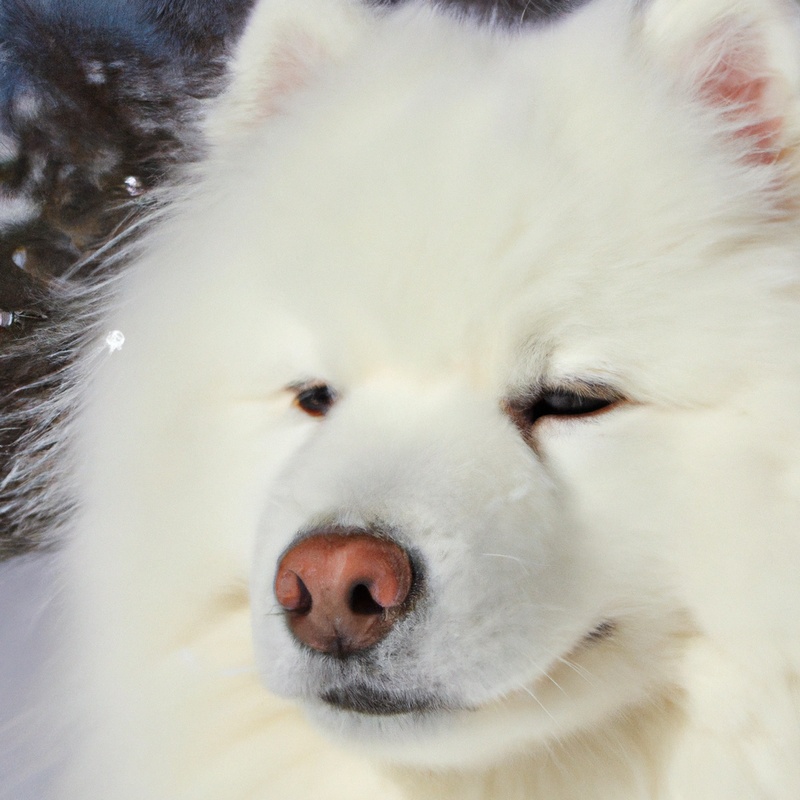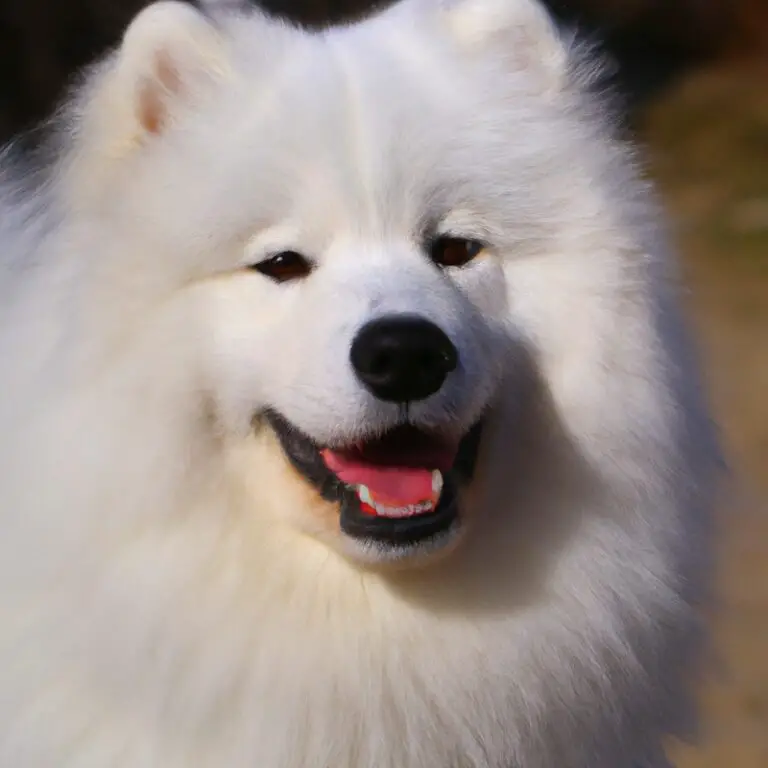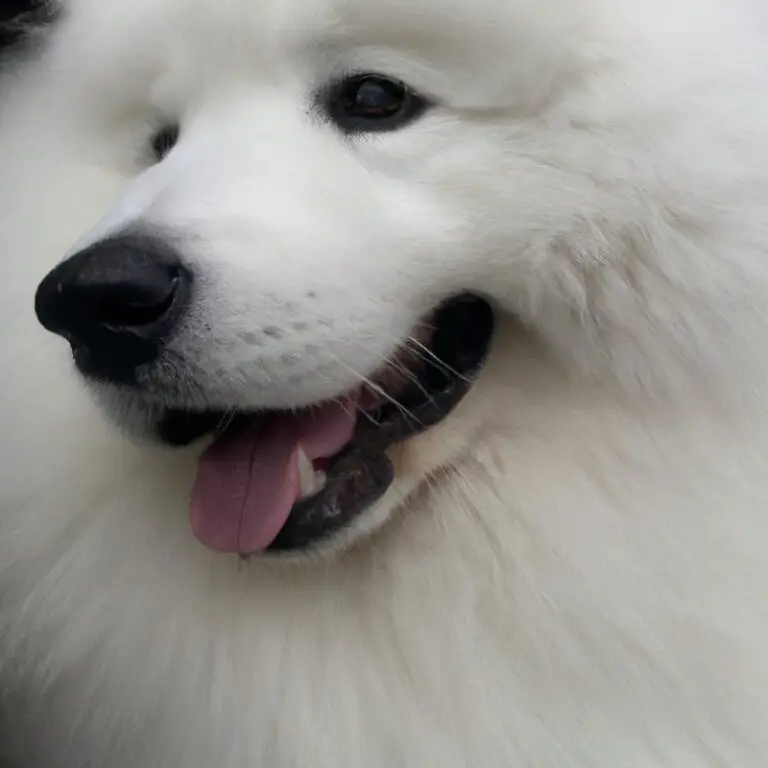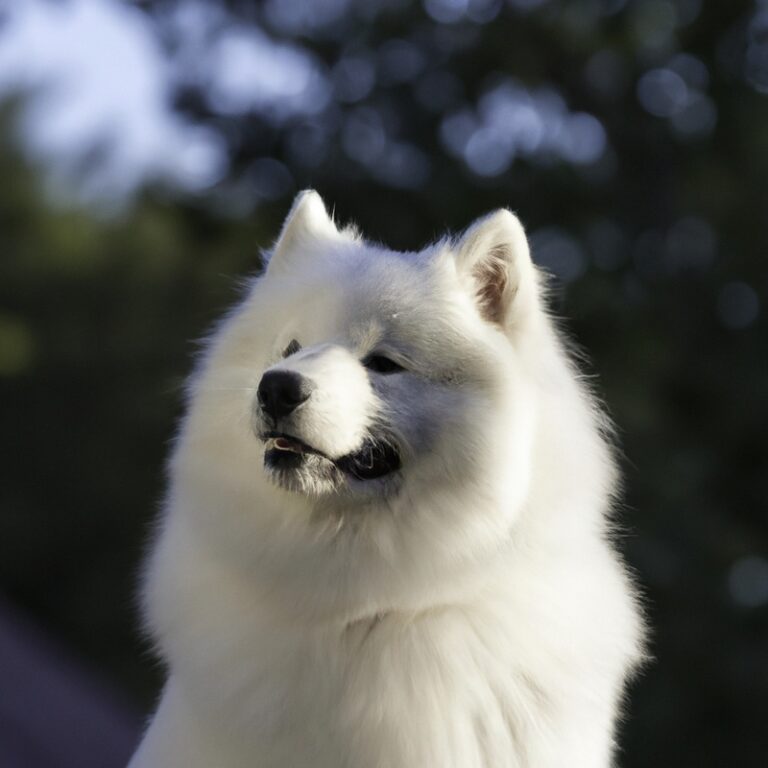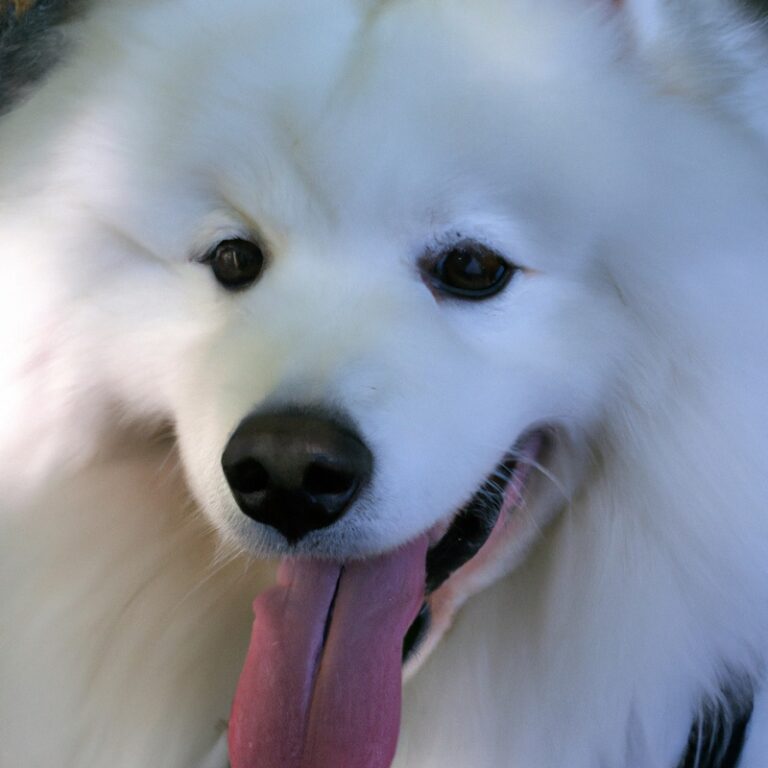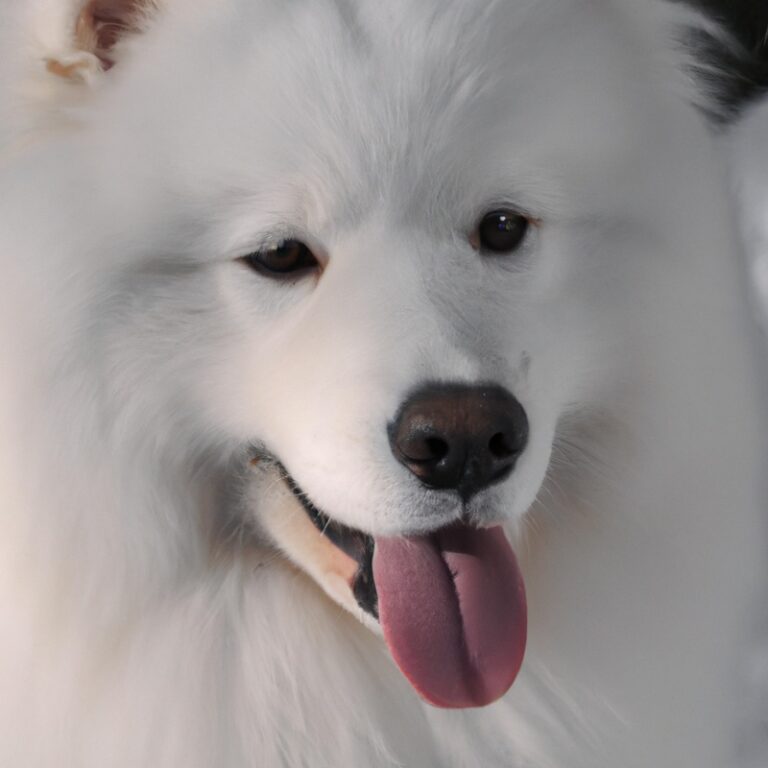Are Samoyeds Good With Other Larger Dog Breeds?
Key Takeaways:
- Samoyeds generally have a friendly and tolerant nature towards other larger dog breeds.
- Early socialization and proper introductions are key to successful interactions between Samoyeds and larger dogs.
- While Samoyeds are typically good with other larger dogs, individual temperament can vary.
- Supervision is important when introducing a Samoyed to a larger dog to ensure compatibility and prevent any potential issues.
Are Samoyeds good with other larger dog breeds?
If you’re a proud Samoyed owner or considering getting one, this question is likely on your mind.
As a longtime dog enthusiast and experienced Samoyed owner, I’m here to share my expertise on this topic.
Samoyeds are known for their friendly and sociable nature, but does that extend to larger breeds?
In this article, we’ll explore the factors to consider when evaluating compatibility between Samoyeds and larger dog breeds, as well as provide socialization and training tips for successful introductions.
Stay tuned to discover the potential challenges, benefits, and frequently asked questions surrounding Samoyeds and larger dog breeds.
| Samoyeds | Larger dog breeds | Compatibility |
|---|---|---|
| Friendly and social | Varies depending on the breed | May get along well |
| Playful and energetic | Can be dominant or aggressive | May clash in hierarchical order |
| Well-suited for families | May require training or socialization | Potential for positive relationships |
| Generally non-confrontational | Can be territorial or protective | Chance for peaceful coexistence |
Compatibility with Larger Dog Breeds
Factors to consider when evaluating compatibility between Samoyeds and larger dog breeds
When evaluating compatibility between Samoyeds and larger dog breeds, there are several factors to consider. It is important to assess the temperament of both breeds, as well as their energy levels and exercise needs.
Considering their size and strength is crucial to ensure they can coexist safely.
Introducing them slowly and in controlled environments can help gauge their reactions and interactions. It’s also important to consider their compatibility in terms of play styles and socialization needs.
Regular monitoring and supervision can help establish a harmonious relationship between Samoyeds and larger dog breeds.
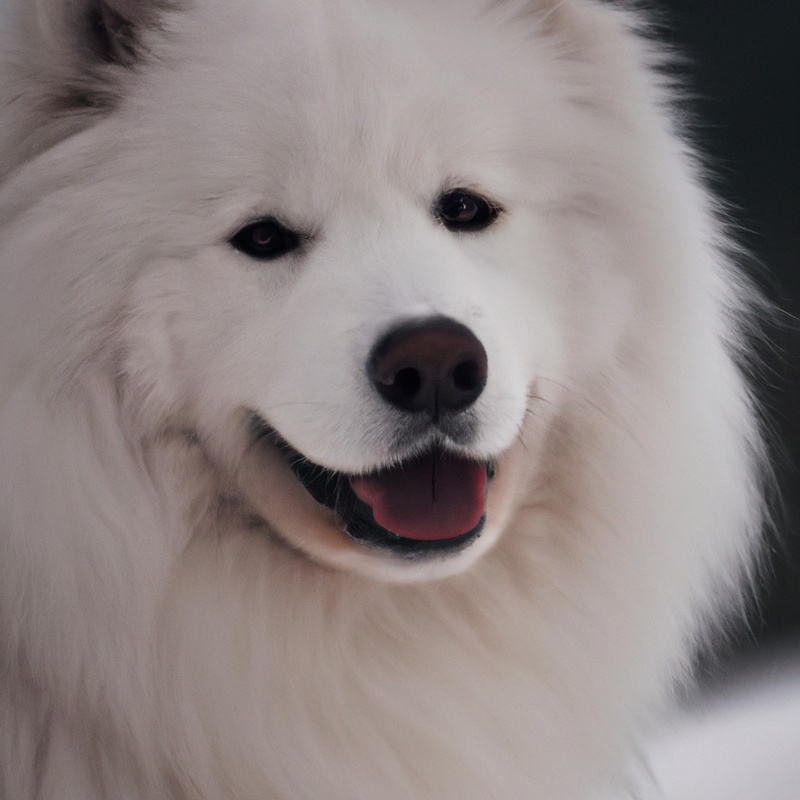
Socialization and training tips for introducing Samoyeds to larger dog breeds
Introducing Samoyeds to larger dog breeds requires careful socialization and training. Here are some tips to help you navigate this process:
- Start early: Begin socializing your Samoyed with larger breeds during puppyhood. Expose them to different dogs and environments to build their confidence and positive associations with bigger dogs.
- Controlled interactions: Initially, introduce your Samoyed to larger breeds in controlled environments, such as training classes or neutral territory. Monitor interactions closely and intervene if needed to prevent any negative experiences.
- Positive reinforcement: Reward your Samoyed for calm and friendly behavior around larger dogs. Use treats, praise, and toys to motivate and encourage positive social interactions.
- Gradual increase in exposure: Slowly increase the intensity and duration of interactions with larger breeds as your Samoyed becomes more comfortable. Gradual exposure helps build trust and confidence.
- Seek professional help if needed: If you’re facing challenges or have concerns about introducing your Samoyed to larger breeds, consider consulting a professional dog trainer or behaviorist. They can provide guidance tailored to your specific situation.
Remember, every dog is unique, so be patient and adaptable in your approach. With proper socialization and training, your Samoyed can have positive relationships with larger dog breeds.
Potential Challenges
Behavioral traits of Samoyeds that may pose challenges when interacting with larger dog breeds
Samoyeds are generally friendly and sociable dogs, but there are some behavioral traits that may pose challenges when interacting with larger dog breeds. One potential issue is that Samoyeds can be quite vocal and have a tendency to bark, which may intimidate or irritate larger dogs.
Additionally, Samoyeds are known to have a strong prey drive, so they may exhibit chasing behavior towards smaller animals or even other larger dogs.
It’s important to carefully introduce Samoyeds to larger breeds and monitor their interactions to ensure they get along well.
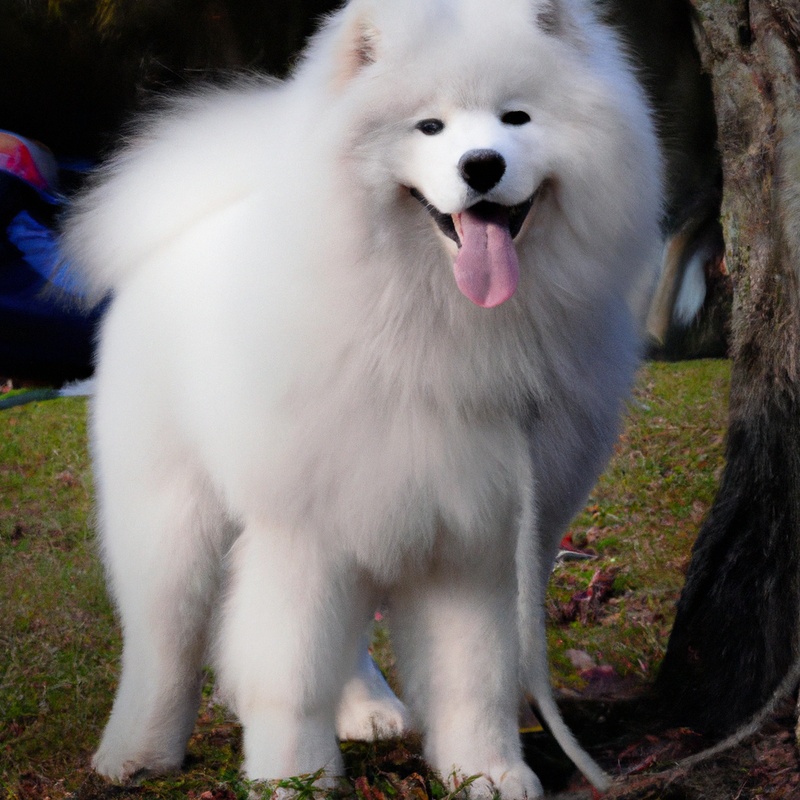
Tips for managing and addressing any potential challenges
When managing and addressing potential challenges with Samoyeds and other larger dog breeds, there are a few tips to keep in mind.
- Socialization: Introduce your Samoyed to different dog breeds and sizes from an early age. This will help them become more comfortable and confident around other dogs.
- Supervision: Always supervise interactions between your Samoyed and larger dog breeds to ensure everyone stays safe. Keep a close eye on their body language and intervene if necessary.
- Training: Consistent and positive training is essential. Teach your Samoyed basic commands, such as “sit” and “stay,” and reinforce good behavior. This will help prevent any potential conflicts.
- Space and Resources: Make sure to provide separate spaces and resources for each dog, including food bowls, toys, and beds. This can help minimize competition and reduce the chances of conflicts arising.
- Expert Assistance: If you’re facing difficulties managing your Samoyed with other larger breeds, don’t hesitate to seek help from a professional dog trainer or behaviorist. They can provide guidance tailored to your specific situation.
Remember, every dog is unique, and it may take time and patience to address any potential challenges. Building a strong foundation of socialization, supervision, training, and resource management can help foster positive relationships between your Samoyed and other larger dogs.
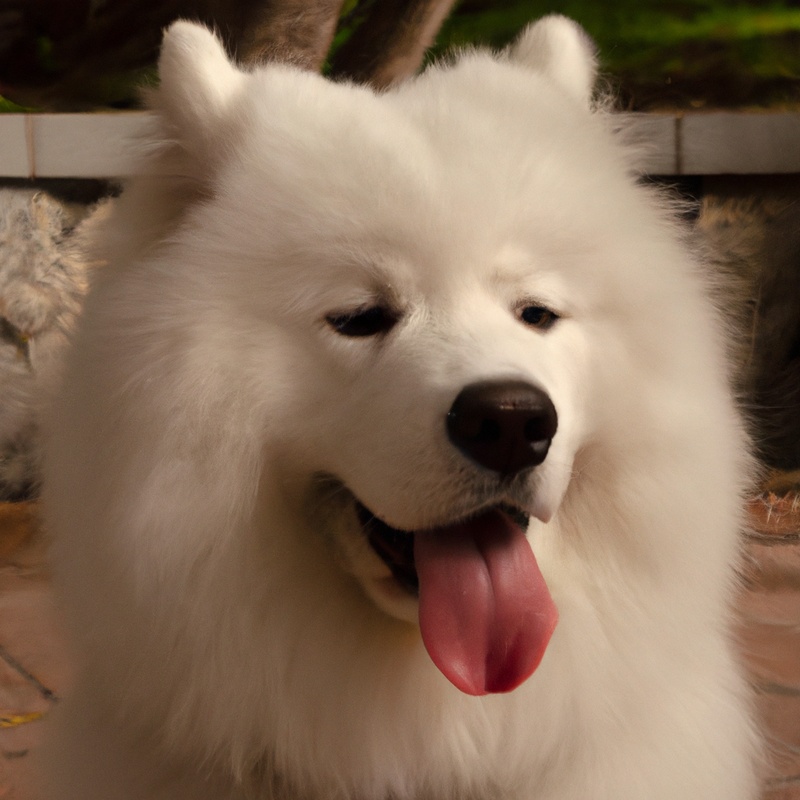
Benefits of Samoyeds with Larger Dog Breeds
Positive traits of Samoyeds that make them good companions for larger dog breeds
Samoyeds have several positive traits that make them great companions for larger dog breeds.
Firstly, they are known for their friendly and gentle nature, which helps them get along well with other dogs, regardless of size.
Secondly, Samoyeds are highly adaptable and can easily adjust to the energy levels of larger breeds, making them compatible playmates.
Thirdly, their thick fur provides insulation, allowing them to be comfortable in various weather conditions.
Additionally, Samoyeds are known to be loyal and protective, making them excellent companions for larger dogs.
Examples of successful pairings and positive experiences with Samoyeds and larger dog breeds
Samoyeds can have successful pairings and positive experiences with larger dog breeds. For example, many Samoyeds get along well with Golden Retrievers, Labrador Retrievers, and German Shepherds.
They have similar energy levels and enjoy playing and exercising together.
I’ve also seen Samoyeds form strong bonds with Bernese Mountain Dogs, Great Danes, and Saint Bernards. These gentle giants often become loyal companions and enjoy each other’s company.
It’s always important to introduce dogs properly and supervise their interactions, but with careful introductions, Samoyeds can have wonderful relationships with larger breeds.
Frequently Asked Questions
Can Samoyeds get along with aggressive larger dog breeds?
Samoyeds generally have a friendly and gentle nature, which can make them good candidates for getting along with other dogs, including larger and potentially aggressive breeds.
However, each dog is unique in terms of their individual temperament and socialization experiences.
It’s important to introduce and monitor interactions between Samoyeds and aggressive larger dog breeds with caution.
Gradual introductions, positive reinforcement training, and supervised play can help foster a harmonious relationship.
Consulting with a professional dog trainer or behaviorist may also be beneficial in ensuring a successful and safe interaction between Samoyeds and aggressive larger dog breeds.
How can I ensure a smooth introduction between my Samoyed and a larger dog breed?
To ensure a smooth introduction between your Samoyed and a larger dog breed, it’s essential to take the following steps:
- Choose a neutral territory: Find a neutral location where both dogs can meet for the first time. This can help prevent territorial behavior and reduce the chances of aggression.
- Use positive reinforcement: Reward both dogs for calm and friendly behavior during the introduction. Treats, praise, and gentle petting can help create a positive association with each other.
- Gradual introduction: Introduce the dogs gradually, starting with short, supervised meetings. Gradually increase the duration of their interactions as they become more comfortable with each other.
- Monitor body language: Pay close attention to the body language of both dogs. Look for signs of anxiety, fear, or aggression. If either dog shows signs of discomfort, separate them and try again later.
- Supervise playtime: Once the dogs are comfortable with each other, allow them to interact through supervised play. Monitor their play to ensure it remains safe and respectful.
Remember, every dog is unique, and the introduction process may take time.
Patience, consistency, and positive reinforcement are key to a successful introduction between your Samoyed and a larger dog breed.
What are some signs of aggression to watch out for during interactions between Samoyeds and larger dog breeds?
During interactions between Samoyeds and larger dog breeds, it’s important to be aware of signs of aggression. Some key signs to watch out for include growling, snarling, raised hackles, lunging, and snapping.
These behaviors indicate that the dogs may not be getting along and aggression is escalating.
It’s crucial to intervene and separate the dogs safely to prevent any potential injuries. Additionally, excessive body stiffening, intense staring, and showing teeth can also be signs of potential aggression.
Observing and understanding these signs is essential in ensuring the safety and harmony between Samoyeds and larger dog breeds.
Final Verdict
Samoyeds can be compatible with larger dog breeds when certain factors are considered. Socialization and training are crucial in ensuring a positive interaction between Samoyeds and larger breeds.
Despite the challenges that may arise due to behavioral traits, such as dominance and prey drive, these can be managed with proper care and attention.
The benefits of pairing Samoyeds with larger breeds include their friendly and playful nature. It’s important to remember that successful pairings have been seen, and with the right approach, Samoyeds can form positive relationships with other larger dog breeds.

